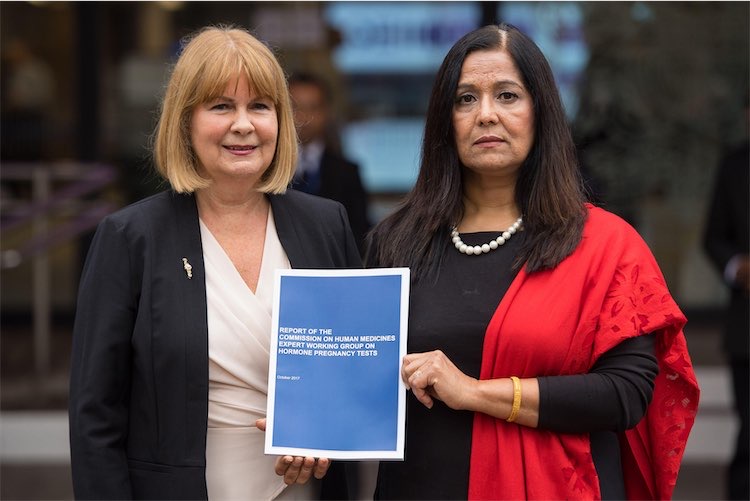Labour MP Calls For End To "Postcode Lottery" For NHS Ear Care Services
A charity warned in January that millions have lost access to free NHS earwax removal (Alamy)
5 min read
Labour MP Yasmin Qureshi has said that patients with hearing loss are being hit by hidden costs that should be covered by the NHS, as she continues to campaign on the issue ahead of Deaf Awareness Week.
Qureshi had held a series of shadow ministerial roles until last year, when she resigned from the Labour frontbench to vote for a SNP motion demanding a ceasefire in Gaza. From the backbenches, Qureshi told PoliticsHome she is now particularly focused on “lobbying” Labour on the importance of health issues and investment in the NHS. Having suffered from hearing loss herself for many years, Qureshi wants to see reform of audiology services offered on the NHS.
With a number of events scheduled to mark Deaf Awareness Week 2024 between 6-12 May, Qureshi said she wanted to highlight the costs that people with hearing loss issues are faced with, including many more people having to pay for earwax removal services that used to be widely covered by the NHS.
Explaining that earwax removal is necessary for many patients before an audiologist can do further assessments of ear health and hearing loss, Qureshi said that most people end up having to pay an extra £50-60 for this service.
“A lot of people are surprised by that and don’t have £60 spare to have their ears dewaxed, so of course they don't use it,” she said.
“So I am trying to ensure that the system we have is one where if the audiologist notices that there is wax in the ear and that needs to be cleaned before any further assessments can be carried out, then allow the NHS to pay for that cleaning service.”
At the start of this year, the Royal National Institute for Deaf People (RNID) submitted Freedom of Information requests to all the integrated care boards (ICBs) in England, which revealed that less than half of ICBs are commissioning wax removal services in line with NICE guidelines. The report warned that almost 10m people in England could therefore no longer access free earwax removal on the NHS.
While some ICBs commission limited services, the charity said that it was a "postcode lottery" whether people can access them. In some areas, these services are only available to patients aged over 55 and at least seven ICBs offer no wax removal services at all.
According to Qureshi, this lack of accessibility could delay vital diagnoses for patients: “The important thing about hearing is that there has been quite a lot of evidence that for people who've got hearing issues and are not using hearing aids in time and early enough when they're diagnosed, it can lead to issues of dementia and other long-term effects.”
 Yasmin Qureshi (right) has also campaigned for justice for those affected by Primodos, a 1960s and 70s hormone pregnancy test which led to birth defects in children (Alamy)
Yasmin Qureshi (right) has also campaigned for justice for those affected by Primodos, a 1960s and 70s hormone pregnancy test which led to birth defects in children (Alamy)
Qureshi also criticised the lack of follow-up care for patients with hearing loss, having recently experienced this herself.
“A year ago I had my hearing test and I was given a new hearing aid and it was all adjusted, but normally there is supposed to be a follow up appointment about two weeks later just to check whether you're doing okay with the hearing aid… and I haven’t heard anything from anyone,” she said.
While Qureshi did not think any specific pledges on treatments for people with hearing loss is likely to make it into the Labour Party’s manifesto, she said that she felt she had a particularly “sympathetic ear” with Shadow Health Secretary Wes Streeting, though Labour were currently being “careful” around committing expenditure on the NHS.
Describing the current Conservative government as “genuinely not bothered” about disabled people, Qureshi said she would continue to advocate for reform of audiology services that would improve care in a “proper, holistic way” if Labour gets into government at the next general election.
The Labour MP previously wrote in The House magazine that making audiology a primary care service, rather than having to access the service after being referred by a GP, would mean patients would have much easier access to services for mild issues such as earwax and tinnitus.
“That way you would take the footfall away from the hospitals and leave the hospitals with the more challenging and serious cases of hearing loss,” she told PoliticsHome.
Expressing her hope that Deaf Awareness Week will help to push these issues up the political agenda, Qureshi added that political representation in Parliament was important for deaf and disabled people.
“[MP] candidates have got to satisfy different things, but once they have all the criteria that are needed, I do believe that we should have more people who have some kind of disability because hopefully they will understand and be able to push that issue,” she said.
As Deaf Awareness Week gets underway, many deaf and hearing loss campaigners will also make the case for greater accessibility to sign language and pioneering technology such as cochlear implants. Qureshi said that while she was currently focused on improving immediate access to hearing care, more work also needed to be done on investing in specialist facilities for children with hearing loss.
PoliticsHome Newsletters
PoliticsHome provides the most comprehensive coverage of UK politics anywhere on the web, offering high quality original reporting and analysis: Subscribe
